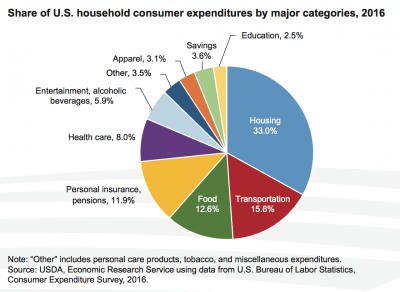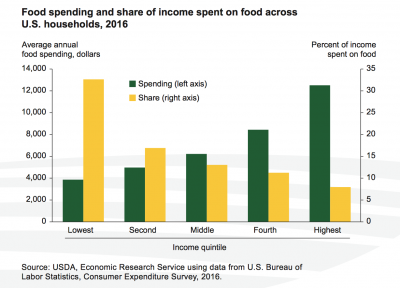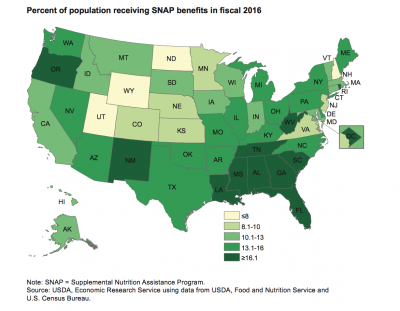A bipartisan group of former leaders of America's major agricultural commodity associations and biofuels organizations, farmer leaders, and former senior USDA officials sent congressional ag leaders a letter on Tuesday…
Farm Bill Update: Perspective from Chairman Conaway and Chairman Roberts
Last week, Don Wick, a farm broadcaster from the Red River Farm Network (Grand Forks, N.D.), sat down with several lawmakers on Capitol Hill to discuss current Farm Bill issues. Notably, he spoke with both the Chairman of the House Ag Committee, Mike Conaway, as well as the Senate Ag Committee Chairman Pat Roberts. Today’s update includes key elements from these lawmaker conversations with the Red River Farm Network.
House Ag Committee Chairman Mike Conaway (R., Tex.)
In his conversation with Chairman Conaway on November 15th (audio replay available here, MP3- 23 minutes), Mr. Wick asked: “Assuming we have success with the tax reform, what impact, if any, does it have on the farm bill?”
This past week, RRFN sat down with @HouseAgNews Chairman @ConawayTX11. You can hear the interview at https://t.co/waS3qIQonY. pic.twitter.com/TEvX88nVzt
— Don Wick (@RRFNWick) November 20, 2017
Chairman Conaway explained that, “I’m hopeful that the muscle memory of having passed a big deal that’s big for America, that we’ll move right to the farm bill and get it passed across the House floor, which I believe will be another big deal for America, to get it done on time.”
With respect to the timing of the Farm Bill debate, Chairman Conaway stated that, “Well, I’m looking at first quarter. I wanted it in either November or December, but obviously events prevented that with the things we put off in September and now this big tax event that’s going to be going on with the Senate. And hopefully it passes across the Senate floor the first week of December, then conference committee, and then we’ve got the approp stuff. So I’m hopeful the first quarter of next year.”
More narrowly, Mr. Wick asked, “Do you see action in the committee quickly and then moving rather rapidly to the floor?
Chairman Conaway noted that,
My preference would be to get a date from the leader and then move back about ten days, run it through committee, have it out there over the weekend, and then be on the floor the following week. So that would be my preferential timing.
While addressing how to get enough votes to get the bill passed, Chairman Conaway elaborated at some length, stating that, “Well, Don, part of it is making America aware of just how important this is. Clearly production agriculture knows the value of the safety net. The SNAP people clearly know what’s going on there. But I would argue that there’s a much broader, vaster group of folks who really should be in favor of us getting correct, good farm policy in place, and that’s anybody who eats every day or would like to eat every day.
As you know, the current scheme, whether you like it or hate it, delivers to the American consumer the safest, most abundant and affordable—emphasis on affordable—food and fiber supply of any developed nation in the world.

“That means that every time they go to the grocery store they get a deal. Now they don’t know why. They don’t know that they’re getting a deal, and they certainly don’t know why they’re getting a deal. But if they knew why, then we would have no problems coming up with well north of 400 votes to get this thing done.”
Chairman Conaway added that, “Let me finish off this segment with the 20% richest folks in America, the ones who make the 20% top of the income bracket, 20%, they spend more on food than the bottom 20% makes in disposable income, all right? You saw recently where 50% of Americans live paycheck to paycheck. Those are the folks that I’m going to be fighting for. I do not want to do something in the farm bill that would arbitrarily, capriciously raise the cost of food.”

“That mom out there who’s running a budget, her house payment, her rent doesn’t change, her car payment doesn’t change. If something happens to her in the month where she needs money, it comes out of her food budget. And why on earth would any of us want to make her life any more difficult than it already is? And so doing what we can to protect the cost of food in America is a big deal and the real reason why we need this farm bill in place.
“Yes, it helps producers, yes, it helps the SNAP guys, but at the end of the day it helps that half of America who’s living paycheck to paycheck. And that’s going to be the crucible that I’m going to put everything I can through, is all right, good idea, but what does it do to the cost of food? And if it raises the cost of food and that mom doesn’t get any better food or more food with it, then I’m going to be hard pressed to be supportive of that.”
And on the SNAP program, Chairman Conaway stated that, “What we have done is put two years and nine months, almost, of review of the SNAP program. We’ve done 16 to 18 hearings—18 hearings, maybe, on just that issue, looking at every aspect of it. So we’ve laid the groundwork for what I would argue is to get the policy right. And that’s really our goal.”

“And that right, correct policy should be not how many people are on the program or how much money we spend, but how quickly can folks who need the program, how quickly can they get back on their own two feet, earning a living, making enough money to get themselves off the program, and then contributing members of society. That’s the success matrix that we should have with all of our welfare programs or all of our help programs, and absolutely that with respect to SNAP.”
While addressing crop insurance issues, Chairman Conaway pointed out that, “At every one of those [Farm Bill] listening sessions, at every hearing we’ve got, crop insurance is the backbone of the protection system, the safety net that’s out there. And so fighting off AGI limits or subsidies, all those things that come up every single time, we’re going to have to fight those off and just be ready for the fight.”
“But crop insurance is the backbone of that risk management system and we’re going to defend it to the death,” Chairman Conaway added.
Senate Ag Committee Chairman Pat Roberts (R., Kans.)
In his discussion with Mr. Wick on November 14th, (audio replay available here, MP3- 15 minutes), Chairman Roberts noted that, “It’s going to be tough, but we had hoped that we might even see some significant progress with regard to getting the farm bill done this fall. But man, we’ve had healthcare, tax reform, all sorts of other issues hitting us at one time. Just couldn’t get the floor time. I’m not saying we have a farm bill blueprint ready to go, but we’re getting pretty close…[S]o we want to move on this in the early spring, certainly.”
There was also this exchange on potential timing for the Farm Bill–
Don Wick: Would the Senate quickly follow the House as far as timeline?
Chairman Roberts: Well, you might ask if the House is going to follow the Senate if we do it right.
Don Wick: Could that happen?
Chairman Roberts: Sure.
And moving to more specific aspects of the next Farm Bill, Chairman Roberts noted that, “And I think Heidi Heitkamp and Joni Ernst are working on a bill with regards to the ARC situation. This third year that payments are going out there’s county disparity. We know that. We knew that going in. It’s a matter of the amount of money. You can either do it by state or by individual farm or by county. This is by county. So you’re naturally going to have some disparities between those counties. We hope to fix that. We have a pilot program that’s being worked on right now by the department. I’d like to see the results of that program before we take the next step. And then again we have to see if we can afford that.”
Mr. Wick pointed out that, “Senators Flake and Shaheen have introduced some legislation on crop insurance, going after some of the revenue policies that we have there. How big of an attack do you see coming at crop insurance in this go round?”
Chairman Roberts explained that, “We always have attacks on crop insurance. These are people who do not realize that the cost of disaster programs annually far exceed the crop insurance program…[Or] else back in the day—I can remember those efforts—it took about a year, year and a half to write a disaster program. It was a disaster to write, a disaster to pass, and then when it got implemented the farmer didn’t get any payment till the next year. And it was exorbitant. And you could probably dream up a disaster program every crop year, especially up around the Red River. I can remember those days. Or out in western Kansas, for that matter.”
AZ Sen Flake & NH Sen Shaheen have a bill to cut the revenue-based crop ins. Ag Com Chair Pat Roberts told RRFN, "God bless their hearts. I've tried to do some education there, but sometimes you just ride into a box canyon." Roberts is confident crop insur will stay intact. pic.twitter.com/lUuyvUYgsa
— Don Wick (@RRFNWick) November 15, 2017
So crop insurance is the number one issue of concern for farmers and ranchers and growers that we have heard from throughout the country. That’s the number one issue.
“Well, Senator Shaheen and Senator Flake don’t understand that, bless their hearts. I have tried to do some education there, but sometimes you just ride into a box canyon.
“And so we can take care of that. I think we can point out to folks that we rescued the program from an $8 billion cut on top of three other cuts that we had since an earlier farm bill. So that’s always the case. And I think we’ll be successful.”





